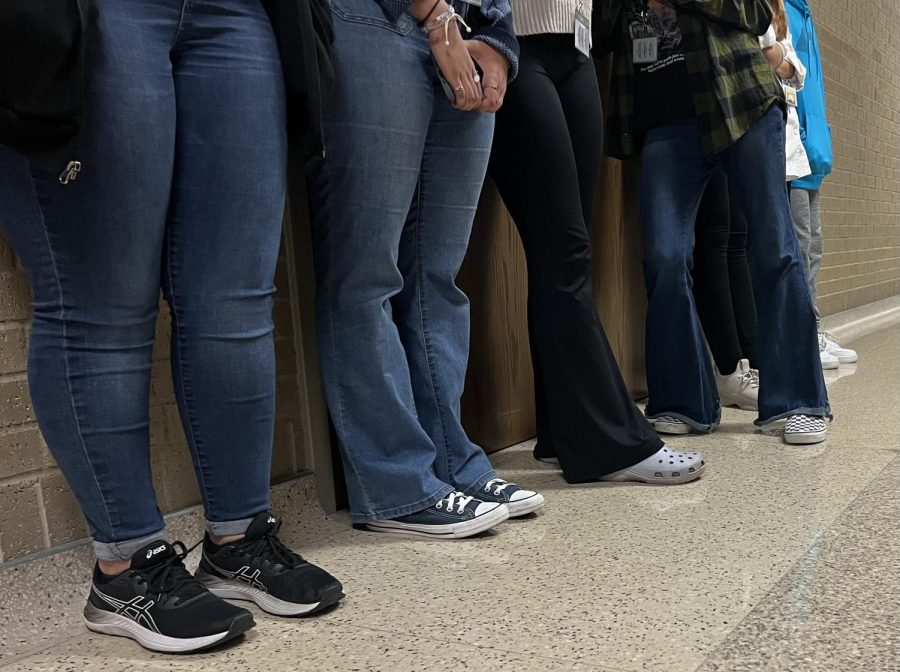Search ‘Em
Students will now randomly have their backpacks searched in order to provide another layer of safety.
On December 14, 2012, 20-year-old Adam Lanza shot and killed 26 people at Sandy Hook Elementary. Of the 26 people murdered, twenty were children 7 years old or younger. According to Britannica, a research engine, Lanza later died by suicide, just as first responders arrived on the scene. The murder was the deadliest in US history and 4th deadliest mass shooting overall.
This event triggered a domino effect; calling for gun control reform, school safety improvement, and mental health awareness. Not even 48 hours later, former President Obama pushed for stricter gun control, including assault weapon bans to prevent incidents resulting in mass shootings. CT Insider, a site devoted to local news in Connecticut, reported that the following school districts received between 5.6-1.2 million dollars in DESPP school security money; New Haven, Waterbury, Naugatuck, Bridgeport, Chesire, Middletown, and Danbury.
School districts, including MISD, are now implementing randomized searches of students’ backpacks and personal belongings. A designated administrator will count students on their way into school, and at a random number, the selected student is pulled to a room to be searched. Typically, prohibited items include but are not limited to: guns, ammunition, razors, box cutters, fireworks, or smoke bombs of any kind. Deborah Ohonbamu, freshman, describes the experience as fast-paced.
“It was actually a fast process, they take you into your room, put your bag down, then empty your pockets. They take your phone away and use a handheld metal detector. Then they’ll scan your whole body first, and then if the dog sniffs and walks away, you’re good.” said Ohonbamu.
According to the Texas Association of School Boards, TASB, in the state of Texas, students hold the right to deny an unreasonable search during school hours or after-school activities. This means that if there is no valid reason to search the student and there is no suspicion of prohibited items. While the meaning of “reasonable” is subjective, it truly depends on the search type. If it is of a student’s personal belongings/backpack, it is reasonable and does not require a warrant. A search of a student’s cell phone/electronic device must follow the same rules in inception and scope. Inception is when a valid reason is established and the search has just begun. Any point afterward is considered scope. While legal, student searches of student belongings. Dylan Carter, sophomore, understands the importance of keeping a safe school environment but feels there is a better way to approach it.
“I know, since the local shooting, things have been strict, but I feel like the situation should really be under control, instead of just searching random people. I think it’s the right idea, but I don’t think they should be searching just anyone,” stated Carter.
According to The National Center for Education Statistics, NCES, “The 2017–18 and 2019–20 questionnaires included only a single item about random sweeps for contraband, and they provided locker checks and dog sniffs as examples of types of sweeps. Prior to 2017–18, the questionnaire included one item about dog sniffs for drugs, followed by a separate item about sweeps not including dog sniffs.”
While student backpack searches can be a well-intentioned idea, they can still be personal, and feel like an invasion of privacy. Students may easily feel exposed, and this can easily lead to negative or harsh attitudes toward the idea of being searched. On the contrary, students may feel this is a good way to ensure student safety and prevent dangerous situations from occurring. Jeanelle Nyarko, freshman, understands where students may be coming from.
“Some people might feel singled out because truthfully, the number of black students is high, so it kind of gives off like a weird vibe. Kids at school probably feel like ‘Oh, they’re targeting me,’ even though they may mean well,” explained Nyarko.
Backpack searches are a good start to protecting students, but the act doesn’t consider how students may feel during and after searches. According to “The Classroom,” a website devoted to students feeling at school, treating students in such a manner can add to the alienation of a student within a school environment. Students like the idea of having their own space and belongings. If you take that away, the student no longer has that sense of privacy and safety. Lillian Asokwah, junior, knows what this feels like, but understands the idea behind it.
“They may think it’s like an invasion of privacy. And while I understand that, I just also think that if you have nothing to hide, it shouldn’t be an issue. Although, sometimes I do feel like it is an invasion of privacy. But just like when we go traveling, we get searched, and we go through security. It’s the same type of thing,” stated Asokwah.
Many schools worldwide are working tirelessly to secure school environments and make schools safe places. Funds are often allocated toward safety, used to install metal detectors, policemen, and overall security.
Even though backpack searches seem like the most efficient way to keep students safe, they fail to factor in its effect on students.


